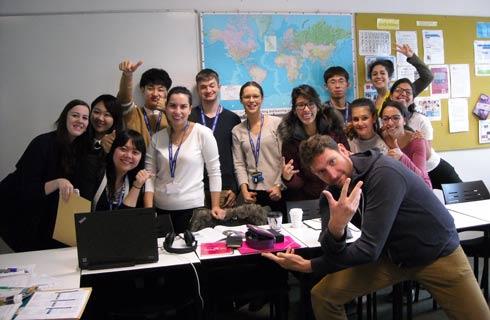国际学生入学条件
Admission to the program is based upon the student's academic record and evidence of ability to pursue independent research.
Normally an overall standing equivalent to 83% in either a relevant thesis-based Master’s degree or a University of Waterloo Master of Engineering (MEng) degree that includes a completed ECE 699 Master of Engineering Project course.
At the time of admission, each student must have a faculty supervisor who has endorsed the recommendation for admission.
Three references, at least two academic
Proof of English language proficiency, if applicable. TOEFL 80 (writing 22, speaking 20, reading 20, listening 18) IELTS 6.5 (writing 6.0, speaking 6.0)
展开
IDP—雅思考试联合主办方

雅思考试总分
6.5
了解更多
雅思考试指南
- 雅思总分:6.5
- 托福网考总分:80
- 托福笔试总分:160
- 其他语言考试:PTE (Academic) - 60 (writing 60, speaking 60)
CRICOS代码:
申请截止日期: 请与IDP顾问联系以获取详细信息。
课程简介
Electrical and computer engineers shape the future through innovation. They develop and improve systems that serve everyday needs of society spanning from high-voltage engineering and sustainable energy, to breakthroughs in wireless technology. Our faculty and students do everything from creating low-cost digital x-ray imagers to combat tuberculosis in developing countries, to building real-time embedded systems to advance the design and reliability of commercial products. The Department of Electrical and Computer Engineering (ECE) is founded on leading engineering education and research, a world-renowned co-operative study program, and a bold history of innovation. Waterloo Engineering is ranked among the top 50 engineering schools in the world; our ECE department is committed to sustaining that excellence in our areas of research while venturing into growing areas of opportunity. We attract the best and brightest students and faculty from around the globe, and our graduates are recruited worldwide by leading engineering firms, corporations, government agencies, and research-intensive universities. A Doctor of Philosophy (PhD) degree is ideal for students pursuing a career in fundamental or applied research in academia, government, or corporate environments.<br><br>The main thrust in this area is the application of electromagnetics to a wide range of engineering systems and devices including antennas, circuits and systems over the RFmicrowave, millimeter-waveTHz, and optical range of frequencies. Research and teaching in this area cover underlying theoretical development and computational methods for investigation and exploration of novel engineered materials and devicesystem concepts, computational methods for simulation and design optimization, and measurement and characterization methods. Electromagnetic and photonic devices and systems are the main enablers of optical communication systemscomponents, modern sensorimaging technologies, and ultra-high speed electronics, nano-photonics, and quantum optics. In addition, numerous emerging areas such as eHealthmobile-Health, smart energy systems, environmental monitoring and remote sensing, as well as their component technologies (wireless bio-medical devices and implants, lab-on-chip, nano-photonics, nano-electromagnetic sensor and actuators, etc.), which form essential infrastructure of the future knowledge-based "green" society, heavily depend on progress in research and availability of expertise in these areas.
展开







 预科
预科 奖学金
奖学金 实习机会
实习机会 在校学习
在校学习 跨境学习
跨境学习 校园授课-线上开始
校园授课-线上开始 在线/远程学习
在线/远程学习














 滑铁卢大学
滑铁卢大学

 多伦多都会大学
多伦多都会大学

 尼亚加拉学院
尼亚加拉学院

 尼亚加拉学院
尼亚加拉学院

 德恒学院
德恒学院

 德恒学院
德恒学院

























